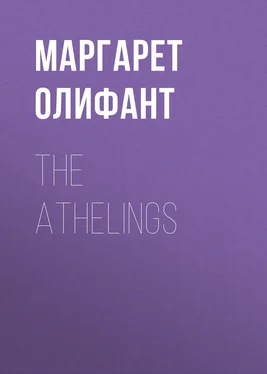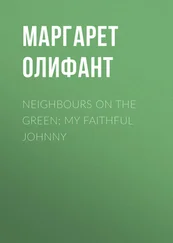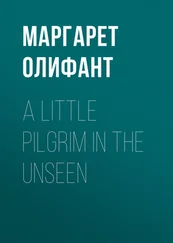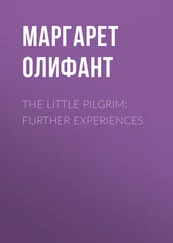Маргарет Олифант - The Athelings
Здесь есть возможность читать онлайн «Маргарет Олифант - The Athelings» — ознакомительный отрывок электронной книги совершенно бесплатно, а после прочтения отрывка купить полную версию. В некоторых случаях можно слушать аудио, скачать через торрент в формате fb2 и присутствует краткое содержание. Жанр: foreign_prose, literature_19, foreign_antique, на английском языке. Описание произведения, (предисловие) а так же отзывы посетителей доступны на портале библиотеки ЛибКат.
- Название:The Athelings
- Автор:
- Жанр:
- Год:неизвестен
- ISBN:нет данных
- Рейтинг книги:5 / 5. Голосов: 1
-
Избранное:Добавить в избранное
- Отзывы:
-
Ваша оценка:
- 100
- 1
- 2
- 3
- 4
- 5
The Athelings: краткое содержание, описание и аннотация
Предлагаем к чтению аннотацию, описание, краткое содержание или предисловие (зависит от того, что написал сам автор книги «The Athelings»). Если вы не нашли необходимую информацию о книге — напишите в комментариях, мы постараемся отыскать её.
The Athelings — читать онлайн ознакомительный отрывок
Ниже представлен текст книги, разбитый по страницам. Система сохранения места последней прочитанной страницы, позволяет с удобством читать онлайн бесплатно книгу «The Athelings», без необходимости каждый раз заново искать на чём Вы остановились. Поставьте закладку, и сможете в любой момент перейти на страницу, на которой закончили чтение.
Интервал:
Закладка:
“Oh!” Agnes made a faint and very doubtful exclamation; Harry Oswald turned on his heel, and left the room abruptly; while Marian bent very closely over her work, to conceal that she was laughing. Mr Endicott thought it was a natural youthful reverence, and gave her all due credit for her “ingenuous emotions.”
“The path of genius necessarily reveals certain obscure individuals,” said Mr Endicott; “they cross its light, and the poet has no choice. I present to my audience the scenes through which I travel. I introduce the passengers on the road. Is it for the sake of these passengers? No. It is that my readers may be enabled, under all circumstances, to form a just realisation of me . That is the true vocation of a poet: he ought to be in himself the highest example of everything—joy, delight, suffering, remorse, and ruin—yes, I am bold enough to say, even crime. No man should be able to suppose that he can hide himself in an indescribable region of emotion where the poet cannot follow. Shall murder be permitted to attain an experience beyond the reach of genius? No! Everything must be possessed by the poet’s intuitions, for he himself is the great lesson of the world.”
“Charlie,” said Harry Oswald behind the door, “come in, and punch this fellow’s head.”
CHAPTER XIX.
CONVERSATION
Charlie came in, but not to punch the head of Mr Endicott. The big boy gloomed upon the dignified American, pushed Harry Oswald aside, and brought his two grammars to the table. “I say, what do you want with me?” said Charlie; he was not at all pleased at having been disturbed.
“Nobody wanted you, Charlie,—no one ever wants you, you disagreeable boy,” said Marian: “it was all Harry Oswald’s fault; he thought we were too pleasant all by ourselves here.”
To which complimentary saying Mr Endicott answered by a bow. He quite understood what Miss Marian meant! he was much flattered to have gained her sympathy! So Marian pleased both her admirers for once, for Harry Oswald laughed in secret triumph behind her chair.
“And you are still with Mr Bell, Harry,” said Mrs Atheling, suddenly interposing. “I am very glad you like this place—and what a pleasure it must be to all your sisters! I begin to think you are quite settled now.”
“I suppose it was time,” said Harry the unlucky, colouring a little, but smiling more as he came out from the shadow of Marian’s chair, in compliment to Marian’s mother; “yes, we get on very well,—we are not overpowered with our practice; so much the better for me.”
“But you ought to be more ambitious,—you ought to try to extend your practice,” said Mrs Atheling, immediately falling into the tone of an adviser, in addressing one to whom everybody gave good advice.
“I might have some comfort in it, if I was a poet,” said Harry; “but to kill people simply in the way of business is too much for me.—Well, uncle, it is no fault of mine. I never did any honour to my doctorship. I am as well content to throw physic to the dogs as any Macbeth in the world.”
“Ay, Harry,” said Mr Foggo; “but I think it is little credit to a man to avow ill inclinations, unless he has the spirit of a man to make head against them. That’s my opinion—but I know you give it little weight.”
“A curious study!” said Mr Endicott, reflectively. “I have watched it many times,—the most interesting conflict in the world.”
But Harry, who had borne his uncle’s reproof with calmness, reddened fiercely at this, and seemed about to resent it. The study of character, though it is so interesting a study, and so much pursued by superior minds, is not, as a general principle, at all liked by the objects of it. Harry Oswald, under the eye of his cousin’s curious inspection, had the greatest mind in the world to knock that cousin down.
“And what do you think of our domestic politics, on the other side of the Atlantic?” asked Papa, joining the more general conversation: “a pretty set of fellows manage us in Old England here. I never take up a newspaper but there’s a new job in it. If it were only for other countries, they might have a sense of shame!”
“Well, sir,” said Mr Endicott, “considering all things—considering the worn-out circumstances of the old country, your oligarchy and your subserviency, I am rather disposed, on the whole, to be in favour of the government of England. So far as a limited intelligence goes, they really appear to me to get on pretty well.”
“Humph!” said Mr Atheling. He was quite prepared for a dashing republican denunciation, but this cool patronage stunned the humble politician—he did not comprehend it. “However,” he continued, reviving after a little, and rising into triumph, “there is principle among them yet. They cannot tolerate a man who wants the English virtue of keeping his word; no honourable man will keep office with a traitor. Winterbourne’s out. There’s some hope for the country when one knows that.”
“And who is Winterbourne, papa?” asked Agnes, who was near her father.
Mr Atheling was startled. “Who is Lord Winterbourne, child? why, a disgraced minister—everybody knows!”
“You speak as if you were glad,” said Agnes, possessed with a perfectly unreasonable pertinacity: “do you know him, papa,—has he done anything to you?”
“I!” cried Mr Atheling, “how should I know him? There! thread your needle, and don’t ask ridiculous questions. Lord Winterbourne for himself is of no consequence to me.”
From which everybody present understood immediately that this unknown personage was of consequence to Mr Atheling—that Papa certainly knew him, and that he had “done something” to call for so great an amount of virtuous indignation. Even Mr Endicott paused in the little account he proposed to give of Viscount Winterbourne’s title and acquirements, and his own acquaintance with the Honourable George Rivers, his lordship’s only son. A vision of family feuds and mysteries crossed the active mind of the American: he stopped to make a mental note of this interesting circumstance; for Mr Endicott did not disdain to embellish his “letters” now and then with a fanciful legend, and this was certainly “suggestive” in the highest degree.
“I remember,” said Mrs Atheling, suddenly, “when we were first married, we went to visit an old aunt of papa’s, who lived quite close to Winterbourne Hall. Do you remember old Aunt Bridget, William? We have not heard anything of her for many a day; she lived in an old house, half made of timber, and ruinous with ivy. I remember it very well; I thought it quite pretty when I was a girl.”
“Ruinous! you mean beautiful with ivy, mamma,” said Marian.
“No, my dear; ivy is a very troublesome thing,” said Mrs Atheling, “and makes a very damp house, I assure you, though it looks pretty. This was just upon the edge of a wood, and on a hill. There was a very fine view from it; all the spires, and domes, and towers looked beautiful with the morning sun upon them. I suppose Aunt Bridget must still be living, William? I wonder why she took offence at us. What a pleasant place that would have been to take the children in summer! It was called the Old Wood Lodge, and there was a larger place near which was the Old Wood House, and the nearest house to that, I believe, was the Hall. It was a very pretty place; I remember it so well.”
Agnes and Marian exchanged glances; this description was quite enough to set their young imaginations a-glow;—perhaps, for the sake of her old recollections, Mamma would like this better than the sea-side.
“Should you like to go again, mamma?” said Agnes, in a half whisper. Mamma smiled, and brightened, and shook her head.
Читать дальшеИнтервал:
Закладка:
Похожие книги на «The Athelings»
Представляем Вашему вниманию похожие книги на «The Athelings» списком для выбора. Мы отобрали схожую по названию и смыслу литературу в надежде предоставить читателям больше вариантов отыскать новые, интересные, ещё непрочитанные произведения.
Обсуждение, отзывы о книге «The Athelings» и просто собственные мнения читателей. Оставьте ваши комментарии, напишите, что Вы думаете о произведении, его смысле или главных героях. Укажите что конкретно понравилось, а что нет, и почему Вы так считаете.












